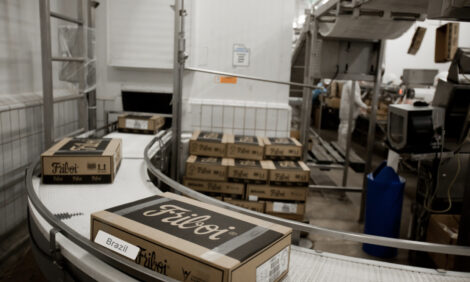



Study Finds Link Across Europe to Salmonella Outbreak from Eggs
EU - Outbreaks and sporadic cases of Salmonella Enteritidis in Austria, France, Germany and the United Kingdom, as well as one case reported in Luxembourg, appear to be linked by the time of symptom onset and microbiological characteristics of isolates.The cases in Austria, France and Germany share an epidemiological link to the same egg packaging centre in southern Germany.
The outbreaks earlier in August prompted the ECDC and EFSA to prepare a rapid outbreak assessment to assess the public health risk at the European Union level.
The investigation followed an urgent inquiry in the Epidemic Intelligence Information System for Food- and Waterborne Diseases and Zoonoses (EPIS-FWD) related to the outbreak of Salmonella enterica serovar Enteritidis (S. Enteritidis) launched by France on 1 August 2014, and a message posted on the Early Warning and Response System (EWRS) on 14 August.
Isolates from contaminated eggs identified in France originating from the implicated German egg packaging centre were found to share similar molecular characteristics to the human cases.
Isolates from a sample of a Salmonella-contaminated strawberry cake, identified in Germany through an investigation unrelated to this outbreak, also shared similar molecular characteristics to the human cases.
The research said that additional microbiological and environmental investigations could further strengthen evidence to support or discard the hypothesis of all cases being part of the same outbreak, and being infected after consumption of the same food (i.e. contaminated eggs produced in southern Germany).
The study said it was particularly unclear with regard to the outbreak cases in the United Kingdom.
Investigations and actions taken by the food sector have supposedly stopped the distribution of the suspected contaminated food to the market.
However, due to the delay in case reporting, the researchers say it is still possible that more cases will be notified.
ECDC said it will continue to closely monitor the occurrence of human cases through EPIS-FWD and Member States could consider enhancing their surveillance activities for this Salmonella serovar and specifically for the phage type 14b.
“It is noticeable that Salmonella Enteritidis-contaminated eggs have been able to reach the market, in spite of the strict regulations applying to table eggs for human consumption, and the success in reducing human and animal infections in recent years within the EU,” the research team said.
“EPIS-FWD and RASFF have been confirmed to be excellent tools for sharing information, identifying potential cross-border threats and linking independent investigations simultaneously occurring in different Member States.”









